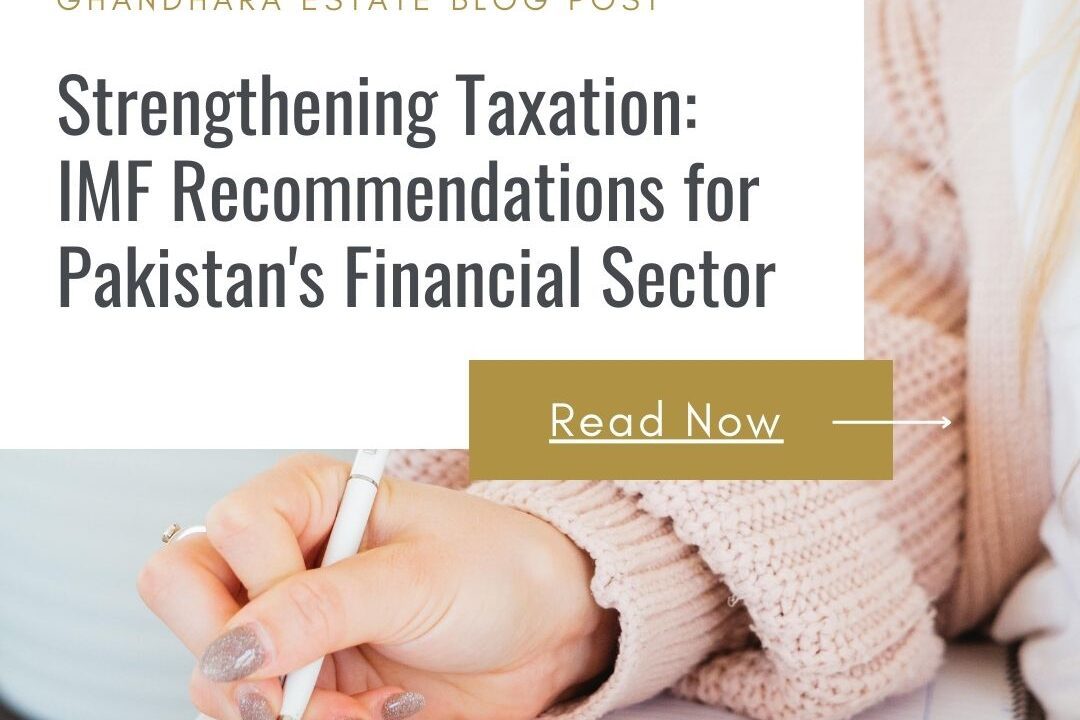

Pakistan’s financial landscape is undergoing scrutiny and transformation as international bodies like the International Monetary Fund (IMF) intervene to recommend reforms. Recently, the IMF has advised the Federal Board of Revenue (FBR) to review taxation structures in real estate and listed securities sectors to ensure comprehensive taxation. These recommendations aim to foster fiscal responsibility and ensure equitable distribution of tax burdens. Let’s delve deeper into the key recommendations put forth by the IMF and their potential implications for Pakistan’s economy.
Taxation of Real Estate and Listed Securities: One of the primary recommendations made by the IMF is to review the taxation slabs for real estate and listed securities. The objective is to eliminate loopholes that allow individuals to hold assets without being subjected to taxation based on the duration of asset ownership. By taxing all gains, regardless of the holding period, the government can generate additional revenue and promote fairness in the tax system.
Moreover, the IMF has proposed measures to enhance transparency in property transactions. This includes obligating property developers to track and report all transfers before the completion and registration of property titles. Such measures are crucial for curbing tax evasion and ensuring compliance with taxation regulations within the real estate sector.
Expanding the Definition of Taxable Assets: To further strengthen the taxation framework, the IMF has suggested amendments to broaden the definition of “personal moveable property” in the Income Tax Ordinance. This proposed amendment aims to encompass a wider range of assets that could potentially be held as investments. By including a catch-all category, the taxation system becomes more comprehensive, covering assets beyond traditional stocks and tangible assets.
Additionally, the expansion of the scope of Capital Gains Tax (CGT) to incorporate cryptocurrencies into the tax net is another significant recommendation. With the rising popularity of digital currencies, it is imperative for governments to adapt their taxation policies accordingly. By taxing gains from cryptocurrency transactions, Pakistan can tap into a previously untapped revenue stream while also regulating the burgeoning crypto market.
Implications and Challenges: While these recommendations hold promise for bolstering Pakistan’s tax revenue and ensuring a fairer taxation system, implementation may pose challenges. Enforcing compliance, especially in sectors known for tax evasion, requires robust monitoring mechanisms and adequate resources. Additionally, there might be resistance from certain stakeholders accustomed to exploiting loopholes in the existing taxation system.
Moreover, expanding the scope of taxation to include emerging assets like cryptocurrencies necessitates technological capabilities and expertise in regulating digital transactions. Building regulatory frameworks that strike a balance between innovation and compliance is crucial to harnessing the potential of these evolving financial instruments.
Conclusion: The IMF’s recommendations for reforming Pakistan’s taxation system represent a step towards enhancing fiscal sustainability and equity. By addressing loopholes, broadening the tax base, and adapting to evolving financial trends, Pakistan can strengthen its revenue generation capabilities and promote economic stability. However, successful implementation will require concerted efforts from policymakers, regulators, and taxpayers alike. It is imperative for Pakistan to seize this opportunity to enact meaningful reforms that pave the way for a more resilient and equitable financial future.
